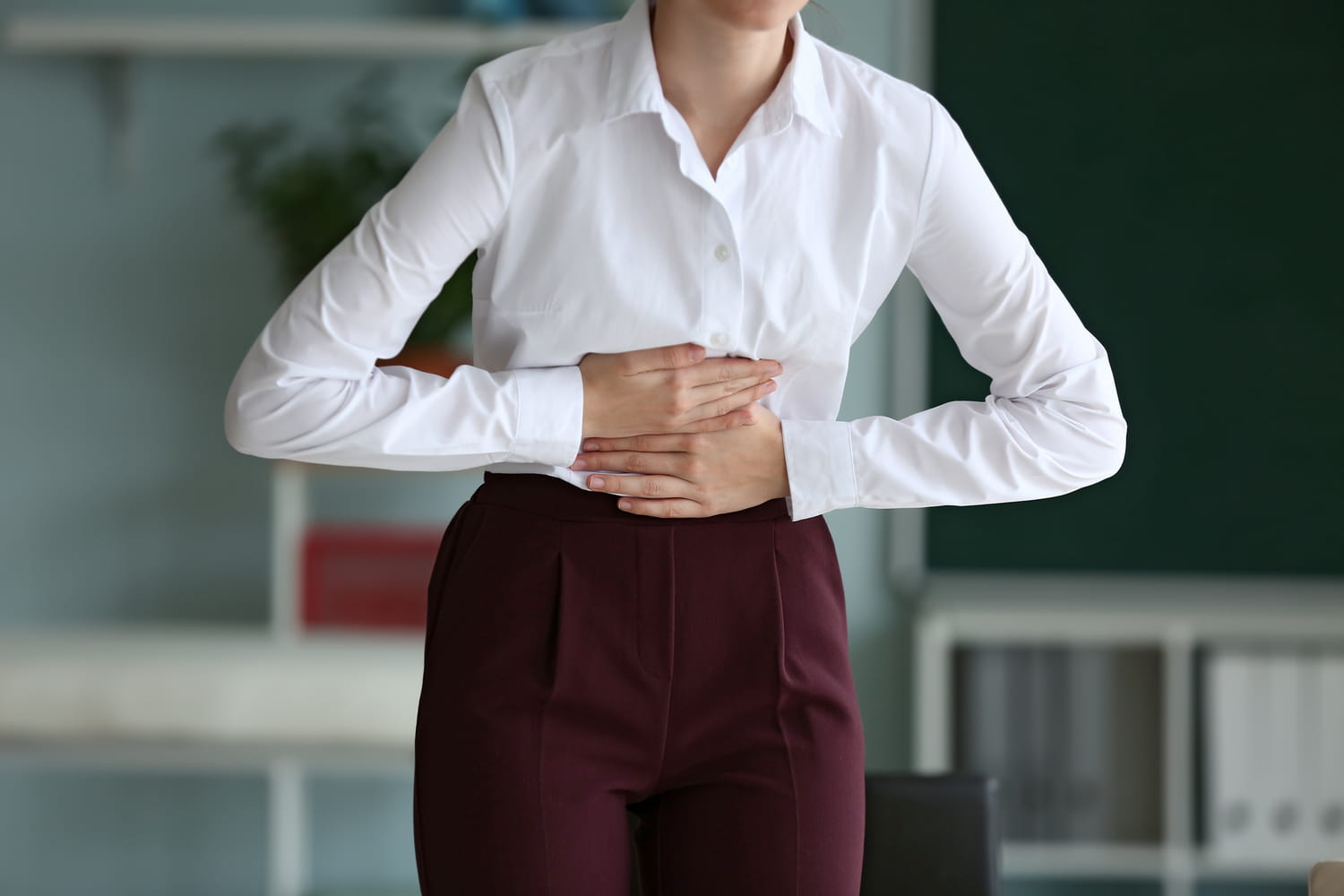Professor Maximilien Barret, gastroenterologist, delivers his anti-bloating solutions.
A stomach that swells, sometimes for no apparent reason, is very annoying. Many women experience it, often after meals, sometimes first thing in the morning. This bloating is accompanied by a feeling of heaviness, tightness, and even pain that disrupts daily life. Some change their diet, others try herbal teas, probiotics or gluten-free diets, without real relief. Behind this swollen belly, there is often a specific disorder, little known but widespread, according to Professor Maximilien Barret, gastroenterologist in Paris.
“This disorder is often associated with changes in the intestinal microbiota. This is why it is sometimes suggested to administer probiotics with the aim of rebalancing the intestinal flora and reducing symptoms”describes the gastroenterologist. Around menopause and perimenopause, the drop in estrogen also plays a significant role in bloating, “it can slow down intestinal transit but also increase visceral hypersensitivity, by relieving an underlying intestinal disorder”.
This disorder, which is the most common cause of a swollen stomach in women, is functional colopathy or “irritable bowel syndrome”. “This condition does not only affect the colon, but also the small intestine. This presents a hypersensitivity to pain, distension and contractions, often perceived as uncomfortable spasms”informs the doctor. In addition to this sensory anomaly, transit disturbances can be added (diarrhea or constipation).
In addition to the administration of probiotics, anti-gas approaches are recommended by the doctor. The best known:medicines based on activated charcoal (over the counter in pharmacies). You can also try compounds combining charcoal and analgesics (Carbosylane or Carbosymag, on prescription) or medications based on simethicone (Meteoxane, Meteospasmyl). “More specific analgesics for intestinal pain, such as trimebutine (Débridat®), phloroglucinol (Spasfon®), or pinaverium (Dicetel®) or mebeverine (Duspatalin®), can help get over the hump” adds Professor Barret.
At the same time, simple measures can also provide relief: applying heat to the stomach, drinking a hot drink, lying on your stomach, strengthening the abdominal muscles, practicing regular physical activity or limiting foods that promote the formation of gas (dried vegetables, cruciferous vegetables) or are irritating to the intestines (such as coffee).


